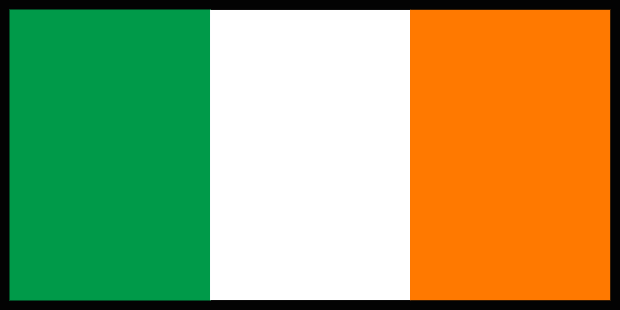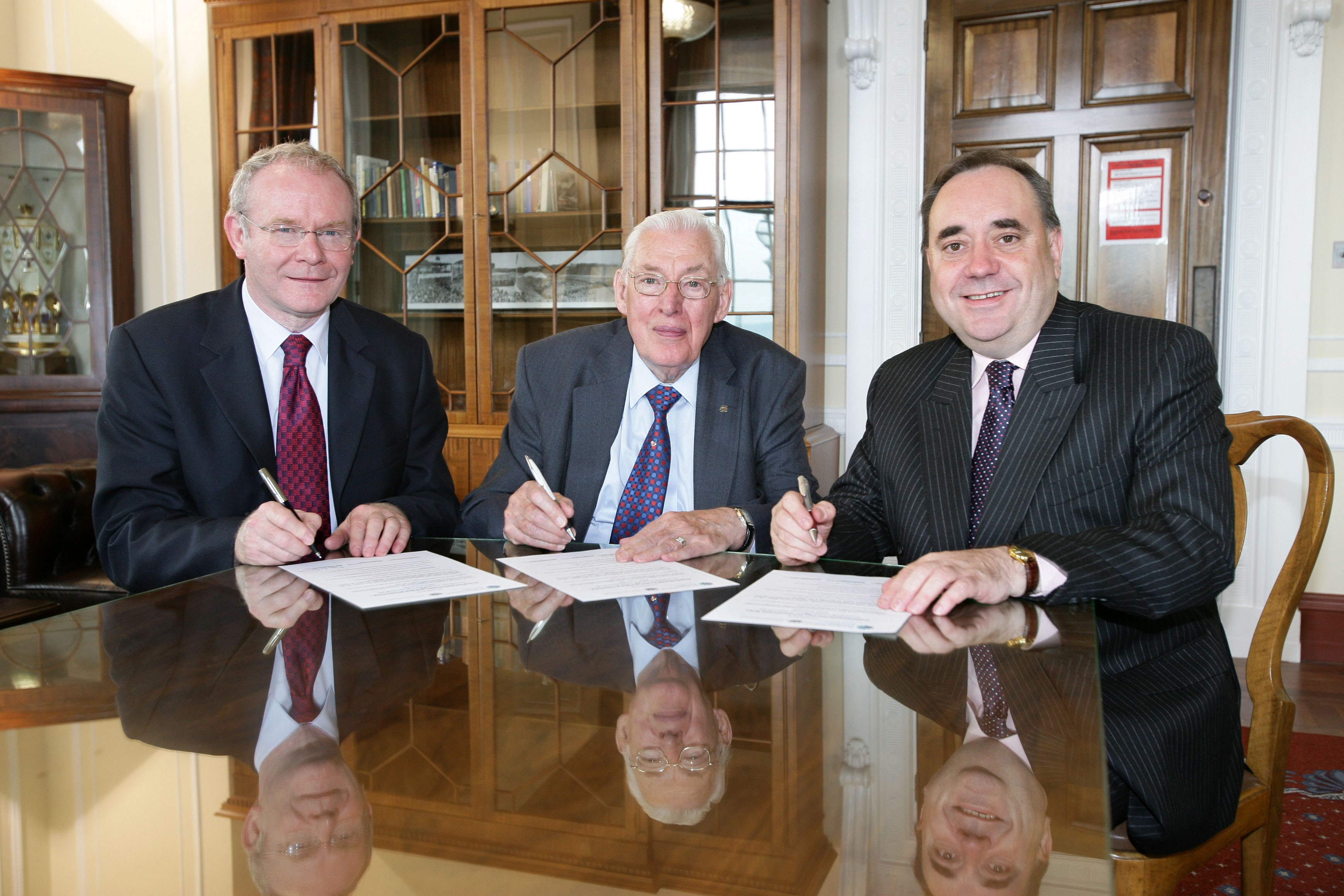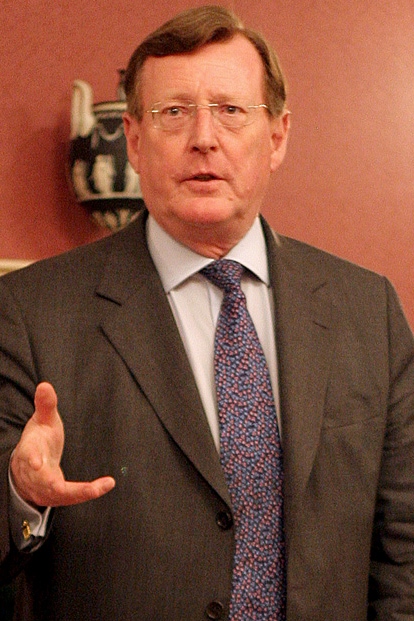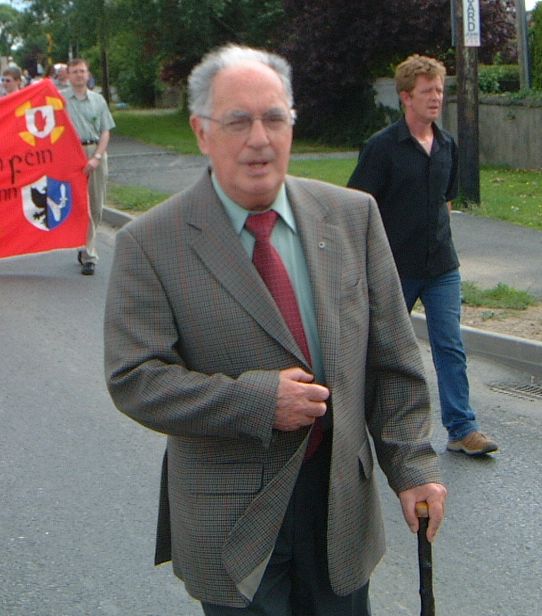|
Martin McGuiness
James Martin Pacelli McGuinness ( ga, Séamus Máirtín Pacelli Mag Aonghusa; 23 May 1950 – 21 March 2017) was an Irish republican politician and statesman from Sinn Féin and a leader within the Provisional Irish Republican Army (IRA) during The Troubles. McGuinness was the deputy First Minister of Northern Ireland from May 2007 to January 2017. McGuinness served as the Member of Parliament (MP) for Mid Ulster from 1997 until his resignation in 2013. Like all Sinn Féin MPs, McGuinness followed abstentionism in the Westminster Parliament. Working alongside other Northern Ireland politicians McGuinness contributed to the Good Friday Agreement which formally cemented the Northern Ireland peace process and established the Northern Ireland Assembly. In 1998, McGuinness was elected as the Member of the Legislative Assembly (MLA) for Mid Ulster. He served as Minister of Education in the Northern Ireland Executive under First Minister David Trimble from 1999 to 2002. Following ... [...More Info...] [...Related Items...] OR: [Wikipedia] [Google] [Baidu] |
First Minister And Deputy First Minister Of Northern Ireland
The First Minister and deputy First Minister of Northern Ireland are the joint heads of government of the Northern Ireland Executive and have overall responsibility for the running of the Executive Office. Despite the different titles for the two offices, the two positions have the same governmental power, resulting in a duumvirate; the deputy First Minister is not subordinate to the First Minister. Created under the terms of the 1998 Good Friday Agreement, both were initially nominated and appointed by members of the Northern Ireland Assembly on a joint ticket by a cross-community vote, using consociational principles. That process was changed following the 2006 St Andrews Agreement, meaning that the First Minister is nominated by the largest party overall, and the deputy First Minister is nominated by the largest party in the next largest community designation. On 17 June 2021, despite a letter from the Democratic Unionist Party chairman and other senior party members, DUP leade ... [...More Info...] [...Related Items...] OR: [Wikipedia] [Google] [Baidu] |
Good Friday Agreement
The Good Friday Agreement (GFA), or Belfast Agreement ( ga, Comhaontú Aoine an Chéasta or ; Ulster-Scots: or ), is a pair of agreements signed on 10 April 1998 that ended most of the violence of The Troubles, a political conflict in Northern Ireland that had prevailed since the late 1960s. It was a major development in the Northern Ireland peace process of the 1990s. It is made up of the Multi-Party Agreement between most of Northern Ireland's political parties, and the BritishIrish Agreement between the British and Irish governments. Northern Ireland's present devolved system of government is based on the agreement. Issues relating to sovereignty, governance, discrimination, military and paramilitary groups, justice and policing were central to the agreement. It restored self-government to Northern Ireland on the basis of "power sharing" and it included acceptance of the principle of consent, commitment to civil and political rights, cultural parity of esteem, police r ... [...More Info...] [...Related Items...] OR: [Wikipedia] [Google] [Baidu] |
Deputy First Minister Of Northern Ireland
The First Minister and deputy First Minister of Northern Ireland are the joint heads of government of the Northern Ireland Executive and have overall responsibility for the running of the Executive Office. Despite the different titles for the two offices, the two positions have the same governmental power, resulting in a duumvirate; the deputy First Minister is not subordinate to the First Minister. Created under the terms of the 1998 Good Friday Agreement, both were initially nominated and appointed by members of the Northern Ireland Assembly on a joint ticket by a cross-community vote, using consociational principles. That process was changed following the 2006 St Andrews Agreement, meaning that the First Minister is nominated by the largest party overall, and the deputy First Minister is nominated by the largest party in the next largest community designation. On 17 June 2021, despite a letter from the Democratic Unionist Party chairman and other senior party members, DUP leade ... [...More Info...] [...Related Items...] OR: [Wikipedia] [Google] [Baidu] |
Provisional Irish Republican Army
The Irish Republican Army (IRA; ), also known as the Provisional Irish Republican Army, and informally as the Provos, was an Irish republican paramilitary organisation that sought to end British rule in Northern Ireland, facilitate Irish reunification and bring about an independent, socialist republic encompassing all of Ireland. It was the most active republican paramilitary group during the Troubles. It saw itself as the army of the all-island Irish Republic and as the sole legitimate successor to the original IRA from the Irish War of Independence. It was designated a terrorist organisation in the United Kingdom and an unlawful organisation in the Republic of Ireland, both of whose authority it rejected. The Provisional IRA emerged in December 1969, due to a split within the previous incarnation of the IRA and the broader Irish republican movement. It was initially the minority faction in the split compared to the Official IRA, but became the dominant faction by 1972. T ... [...More Info...] [...Related Items...] OR: [Wikipedia] [Google] [Baidu] |
Sinn Féin
Sinn Féin ( , ; en, " eOurselves") is an Irish republican and democratic socialist political party active throughout both the Republic of Ireland and Northern Ireland. The original Sinn Féin organisation was founded in 1905 by Arthur Griffith. Its members founded the revolutionary Irish Republic and its parliament, the First Dáil, during the Irish War of Independence. The party split in the aftermath of the Irish Civil War, giving rise to the two traditionally dominant parties of southern Irish politics: Fianna Fáil, and Cumann na nGaedheal (which became Fine Gael). For several decades the remaining Sinn Féin organisation was small without parliamentary representation. Another split in 1970 at the start of the Troubles led to the Sinn Féin of today, with the other faction eventually becoming the Workers' Party. During the Troubles, Sinn Féin was associated with the Provisional Irish Republican Army (IRA). For most of that conflict, there were broadcasting bans on Si ... [...More Info...] [...Related Items...] OR: [Wikipedia] [Google] [Baidu] |
Irish Republican
Irish republicanism ( ga, poblachtánachas Éireannach) is the political movement for the unity and independence of Ireland under a republic. Irish republicans view British rule in any part of Ireland as inherently illegitimate. The development of nationalist and democratic sentiment throughout Europe in the eighteenth and nineteenth centuries, distilled into the contemporary ideology known as republican radicalism, was reflected in Ireland in the emergence of republicanism, in opposition to British rule. Discrimination against Catholics and Protestant nonconformists, attempts by the British administration to suppress Irish culture, and the belief that Ireland was economically disadvantaged as a result of the Acts of Union were among the specific factors leading to such opposition. The Society of United Irishmen, formed in 1791 and led primarily by liberal Protestants, launched the 1798 Rebellion with the help of troops sent by Revolutionary France, but the uprising f ... [...More Info...] [...Related Items...] OR: [Wikipedia] [Google] [Baidu] |
The Troubles
The Troubles ( ga, Na Trioblóidí) were an ethno-nationalist conflict in Northern Ireland that lasted about 30 years from the late 1960s to 1998. Also known internationally as the Northern Ireland conflict, it is sometimes described as an "irregular war" or "Low-intensity conflict, low-level war". The conflict began in the late 1960s and is usually deemed to have ended with the Good Friday Agreement of 1998. Although the Troubles mostly took place in Northern Ireland, at times violence spilled over into parts of the Republic of Ireland, England and mainland Europe. The conflict was primarily political and nationalistic, fuelled by historical events. It also had an Ethnic group, ethnic or sectarian dimension but despite use of the terms 'Protestant' and 'Catholic' to refer to the two sides, it was not a Religious war, religious conflict. A key issue was the Partition of Ireland, status of Northern Ireland. Unionism in Ireland, Unionists and Ulster loyalism, loyalists, who for ... [...More Info...] [...Related Items...] OR: [Wikipedia] [Google] [Baidu] |
Provisional IRA
The Irish Republican Army (IRA; ), also known as the Provisional Irish Republican Army, and informally as the Provos, was an Irish republicanism, Irish republican paramilitary organisation that sought to end British rule in Northern Ireland, facilitate United Ireland, Irish reunification and bring about an independent, socialist republic encompassing all of Ireland. It was the most active republican paramilitary group during the Troubles. It saw itself as the army of the all-island Irish Republic and as the sole legitimate successor to the Irish Republican Army (1919–1922), original IRA from the Irish War of Independence. It was List of designated terrorist groups, designated a terrorist organisation in the United Kingdom and an unlawful organisation in the Republic of Ireland, both of whose authority it rejected. The Provisional IRA emerged in December 1969, due to a split within Irish Republican Army (1922–1969), the previous incarnation of the IRA and the broader Republic ... [...More Info...] [...Related Items...] OR: [Wikipedia] [Google] [Baidu] |
Official Irish Republican Army
The Official Irish Republican Army or Official IRA (OIRA; ) was an Irish republicanism, Irish republican paramilitary group whose goal was to remove Northern Ireland from the United Kingdom and create a "socialist state, workers' republic" encompassing United Ireland, all of Ireland. It emerged in December 1969, shortly after the beginning of the Troubles, when the Irish Republican Army (1922–1969), Irish Republican Army (IRA) split into two factions. The other was the Provisional Irish Republican Army, Provisional IRA. Each continued to call itself simply "the IRA" and rejected the other's legitimacy. Unlike the "Provisionals", the "Officials" did not think that Ireland could be unified until the Protestantism in Ireland, Protestant majority and Irish Catholics, Catholic minority Demography of Northern Ireland, of Northern Ireland were at peace with each other. The Officials were Marxism-Leninism, Marxist-Leninists and worked to form a united front with other Irish communis ... [...More Info...] [...Related Items...] OR: [Wikipedia] [Google] [Baidu] |
Francie Molloy
Francie Molloy ( ga, Proinsias Ó Maolmhuaidh; born 16 December 1950) is an Irish Sinn Féin politician who has been the abstentionist Member of Parliament (MP) for Mid Ulster since 2013. He was a Member of the Northern Ireland Assembly (MLA) for Mid Ulster from 1998 to 2013. He first stood for Sinn Féin in Fermanagh and South Tyrone in the 1982 Assembly Elections, finishing sixth in the five-seat constituency. He was then elected to Dungannon council in 1985 representing the Torrent electoral area, centred on Coalisland. He retired from the council in 1989 but was re-elected in 1993. Molloy stood unsuccessfully for Sinn Féin in the 1994 European Parliament election. Molloy was elected to the Northern Ireland Forum in 1996 representing Mid Ulster and then for the same constituency to the Northern Ireland Assembly in 1998, 2003 and 2007. In 2005, Molloy was temporarily suspended from Sinn Féin after publicly disagreeing with the party policy on eliminating many dist ... [...More Info...] [...Related Items...] OR: [Wikipedia] [Google] [Baidu] |
William McCrea, Baron McCrea Of Magherafelt And Cookstown
Robert Thomas William McCrea, Baron McCrea of Magherafelt and Cookstown (born 6 August 1948) is a retired Free Presbyterian minister from Northern Ireland. A former Democratic Unionist Party (DUP) politician, he represented South Antrim and Mid Ulster as their Member of Parliament (MP), representing Mid Ulster from 1983 to 1997; then South Antrim between 2000 to 2001, and then again from 2005 to 2015. McCrea was also a Member of the Northern Ireland Assembly (MLA) for Mid Ulster from 1998 to 2007, before moving to represent South Antrim in the Assembly from 2007 to 2010. Early life and education McCrea was the youngest of five children born to Robert Thomas (a farmer in Stewartstown, Northern Ireland) and Sarah Jayne in August 1948. He was educated in Magherafelt and spent a short time working in Social Security in the Civil Service of Northern Ireland before beginning training as a Free Presbyterian Church of Ulster minister. He undertook this training at Ravenhill Th ... [...More Info...] [...Related Items...] OR: [Wikipedia] [Google] [Baidu] |





.jpg)


